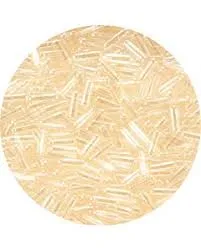
Oct . 16, 2024 18:49 Back to list
hydroxyethylcellulose powder
Hydroxyethylcellulose Powder Properties and Applications
Hydroxyethylcellulose (HEC) is a non-ionic, water-soluble polymer derived from cellulose. It is widely recognized for its versatile properties, making it a vital ingredient in various industries, including cosmetics, pharmaceuticals, food, and construction. This article delves into the characteristics, applications, and benefits of hydroxyethylcellulose powder.
Chemical Structure and Properties
HEC is a modified form of cellulose, in which hydroxyethyl groups are introduced into the cellulose structure. This modification enhances its solubility in cold water, which is a significant advantage over other cellulose derivatives. HEC appears as a white to off-white powder and is odorless. It is known for its ability to form a gel or thickening agent when dissolved in water, making it an essential ingredient in many formulations.
One of the key properties of hydroxyethylcellulose is its temperature and pH stability. It can maintain its thickening efficacy under various conditions, which makes it suitable for a wide range of applications. Additionally, HEC is non-toxic, making it safe for use in personal care products and food applications.
Applications of Hydroxyethylcellulose Powder
1. Cosmetics and Personal Care Products Hydroxyethylcellulose is extensively used in the cosmetic industry due to its thickening, emulsifying, and stabilizing properties. It can be found in lotions, creams, shampoos, and gels. HEC improves the texture and viscosity of formulations, providing a smooth application. Furthermore, it helps to retain moisture in the skin, enhancing the overall hydrating effect of cosmetic products.
hydroxyethylcellulose powder

2. Pharmaceuticals In the pharmaceutical sector, HEC is employed as a viscosity modifier in topical creams and ointments, ensuring consistent texture and drug delivery. Its ability to form films makes it suitable for sustained-release drug formulations, where it controls the release rate of active ingredients over time.
3. Food Industry Hydroxyethylcellulose serves as a food additive, particularly in products like sauces, dressings, and dairy items. It helps improve texture, stability, and mouthfeel, enhancing the overall sensory experience of food products. Being non-allergenic, HEC is a preferred choice in gluten-free formulations, acting as a binding agent.
4. Construction In the construction industry, hydroxyethylcellulose is used as a thickening agent in mortars, tile adhesives, and paints. It improves workability and prevents water loss during the curing process, which is essential for achieving durable and high-quality construction materials.
Benefits of Hydroxyethylcellulose Powder
The use of hydroxyethylcellulose powder offers numerous benefits. Its versatility allows formulators to create products with desired texture and stability. HEC is also compatible with a wide range of ingredients, including surfactants and salts, making it a flexible component in various formulations. Additionally, its favorable safety profile ensures that it can be used in applications that are safe for consumers.
In conclusion, hydroxyethylcellulose powder is a vital ingredient across a plethora of industries, thanks to its unique properties and multifunctional applications. As industries continue to evolve, the demand for versatile and effective ingredients like HEC is likely to grow, driving innovation and enhancing product performance. Whether in cosmetics, pharmaceuticals, food, or construction, HEC remains a crucial player in providing quality and efficiency.
-
Versatile Hpmc Uses in Different Industries
NewsJun.19,2025
-
Redispersible Powder's Role in Enhancing Durability of Construction Products
NewsJun.19,2025
-
Hydroxyethyl Cellulose Applications Driving Green Industrial Processes
NewsJun.19,2025
-
Exploring Different Redispersible Polymer Powder
NewsJun.19,2025
-
Choosing the Right Mortar Bonding Agent
NewsJun.19,2025
-
Applications and Significance of China Hpmc in Modern Industries
NewsJun.19,2025







